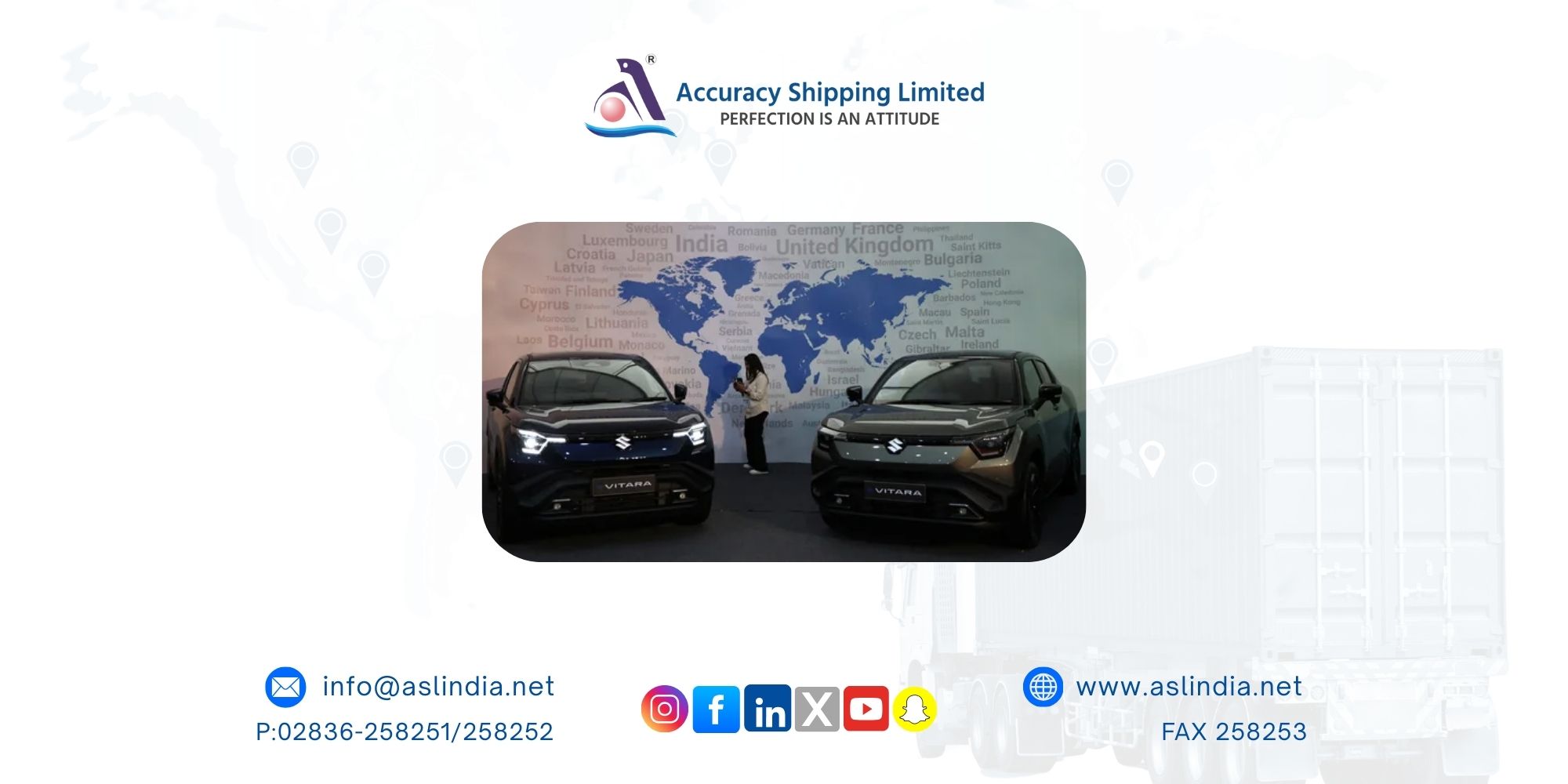Why the Maruti Suzuki e-Vitara is a significant Make-In-India milestone

India’s electric vehicle (EV) journey has reached a defining moment with the launch of the Maruti Suzuki e-Vitara the company’s maiden EV offering and its first truly global electric vehicle. With shipments to Japan and Europe in the pipeline, the e-Vitara represents not just a product, but a statement of India’s EV manufacturing capabilities on the global stage.
A Landmark Beginning
The historic moment was marked by the Prime Minister of India flagging off the first Suzuki e-Vitara rolling out of the production line at Suzuki’s Hansalpur plant in Gujarat. The first unit is headed to the UK, one of over 100 countries where the model will be exported. Ever since its unveiling at the Bharat Mobility Global Expo 2025 in New Delhi, the e-Vitara has positioned India as the nerve centre of Suzuki’s global battery-electric vehicle (BEV) strategy.
Suzuki, often criticised for its late entry into the EV market, has answered its critics by focusing on a born-electric platform engineered for international markets right from inception. While Tata Motors and Mahindra & Mahindra are still developing their export strategies for Europe and the UK, Suzuki has taken the bold step of making India the hub for its global EV rollout.
A Born-Electric Platform with Global Standards
At the heart of the e-Vitara lies a skateboard platform jointly developed by Suzuki, Toyota, and Daihatsu, with Suzuki taking the lead. This collaboration has resulted in a robust architecture featuring advanced e-axle systems, efficient battery integration, and scalability that rivals India’s domestic leaders.
The e-Vitara will be offered in two main variants 49 kWh and 61 kWh battery packs with both front-wheel drive and all-wheel drive (Suzuki’s AllGrip) options. Interestingly, this platform will also underpin Toyota’s Urban Cruiser EV, showcasing its multi-brand potential.
What makes the e-Vitara export-ready is Toyota’s contribution towards ensuring compliance with global safety standards, including Euro NCAP, ASEAN NCAP, and Japan’s stringent crash tests. Toyota also lent its expertise in Lithium Iron Phosphate (LFP) battery safety, strengthening the platform’s global viability.
Localisation with Global Value Chains
One of the most significant milestones of the Hansalpur plant is the local manufacturing of hybrid battery electrodes. The Prime Minister hailed this as “a big boost to our battery ecosystem.” While the e-Vitara currently uses imported BYD “Blade” battery cell packs from China, the local production of electrodes marks a crucial step towards India’s supply chain independence.
Battery electrodes the cathode and anode layers that enable energy storage have historically been sourced from China. According to Vikram Handa, MD of Epsilon Advanced Materials, local electrode manufacturing could transform India’s EV supply chain by reducing overdependence on China. However, challenges remain in scaling up domestic production of battery powders and foils, which are critical to reducing long-term reliance on imports.
Why the e-Vitara Matters for Make-In-India
The e-Vitara isn’t just another EV it’s a Make-In-India milestone that highlights the country’s growing role in global automotive supply chains. It shows how India can go beyond being an assembly hub to becoming a centre of EV innovation, engineering, and localisation.
By manufacturing a born-electric vehicle that is not only tailored for Indian roads but also competitive in Europe and Japan, Maruti Suzuki has set a benchmark for Indian automakers. The localisation of electrodes further strengthens the EV ecosystem, paving the way for more components to be indigenously manufactured in the future.
Conclusion
The Maruti Suzuki e-Vitara marks a turning point in India’s EV story. It brings together the strengths of global partnerships, localised manufacturing, and a Make-In-India vision that aspires to meet the highest global standards. As India gears up to become a leading EV manufacturing hub, the e-Vitara’s global rollout is a strong reminder that the country is no longer just catching up it’s ready to lead.







